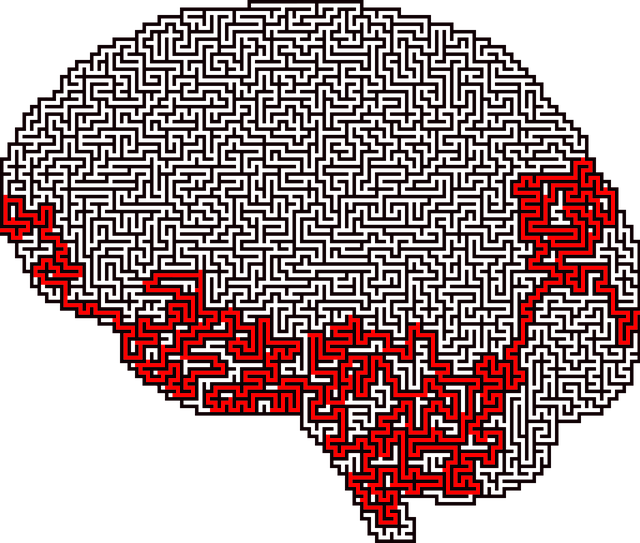Lone Tree Parenting Skills Therapy offers specialized counseling for single parents, helping them manage stress, improve communication, and build healthy relationships with their children. A comprehensive mental health self-assessment should evaluate emotional well-being, interpersonal dynamics, and include self-awareness exercises for better understanding. Online platforms for self-assessments must be accessible, user-friendly, culturally sensitive, and offer tailored mood management techniques. These tools measure success by tracking mental wellness progress, aiding therapists in tailoring interventions and risk management planning.
Mental wellness self-assessment tools play a crucial role in personal growth, especially within therapeutic contexts like Lone Tree Parenting Skills Therapy. This article explores the development and importance of such tools, focusing on their ability to empower individuals in understanding their mental health. We delve into tailoring assessments for specific needs, creating accessible online platforms, and measuring the impact on therapy sessions. By examining these components, we aim to enhance the effectiveness of self-assessment tools in supporting mental wellness journeys.
- Understanding Mental Wellness Self-Assessment: A Necessary Tool for Personal Growth
- Target Audience: Tailoring the Assessment for Lone Tree Parenting Skills Therapy
- Components of a Comprehensive Mental Health Self-Assessment
- Creating Effective and Accessible Online Platforms for User Engagement
- Measuring Success: Evaluating the Impact of Self-Assessment Tools in Therapy Sessions
Understanding Mental Wellness Self-Assessment: A Necessary Tool for Personal Growth

Target Audience: Tailoring the Assessment for Lone Tree Parenting Skills Therapy

The development of a tailored mental wellness self-assessment tool for Lone Tree Parenting Skills Therapy (LTPST) requires a deep understanding of its target audience—parents navigating the unique challenges of raising children in remote or rural settings. This assessment should cater to the specific needs and experiences of these parents, many of whom may face increased isolation, limited access to support networks, and heightened stress levels due to the demanding nature of parenting in these environments. By focusing on LTPST, the tool aims to enhance public awareness campaigns development by offering a targeted approach to coping skills development for this demographic.
The self-assessment should incorporate questions that explore effective coping strategies tailored to rural parenting, stress management techniques suited to their lifestyle, and resources available within their communities. This personalized approach ensures that parents receive relevant support and guidance, fostering a sense of community and empowerment while encouraging open conversations about mental wellness. Such an initiative can significantly contribute to improving the overall well-being of families in these areas, addressing the unique challenges they face.
Components of a Comprehensive Mental Health Self-Assessment

A comprehensive mental health self-assessment tool for parents should incorporate several key components to effectively gauge and support individual needs. Firstly, it must include sections that evaluate emotional well-being, such as mood stability, stress levels, and coping mechanisms. Assessing one’s ability to manage and overcome challenges, whether through established coping skills development or novel conflict resolution techniques, is vital.
Additionally, the tool should explore interpersonal dynamics, including communication patterns within families, social support networks, and any recurring conflicts that might impact mental wellness. By integrating these aspects, the self-assessment can offer a holistic view of an individual’s mental health status, guiding them towards targeted interventions like Lone Tree parenting skills therapy or stress management workshops organized by relevant organizations.
Creating Effective and Accessible Online Platforms for User Engagement

Developing accessible online platforms is a key aspect of creating effective mental wellness self-assessment tools. With many individuals seeking support for their mental health, particularly those in remote areas or with limited access to traditional therapy like Lone Tree Parenting Skills Therapy, digital solutions offer a much-needed alternative. These platforms should be designed with user engagement and accessibility at the forefront, ensuring they are intuitive, user-friendly, and cater to diverse needs. Incorporating features such as interactive self-awareness exercises can empower users to explore their emotions, thoughts, and behaviors, fostering a deeper understanding of themselves and their mental wellness.
Furthermore, cultural sensitivity in mental healthcare practice is paramount when creating these online tools. Recognizing and incorporating diverse cultural perspectives ensures that the resources are relevant and respectful to users from various backgrounds. This is especially important as it encourages openness and honest self-reflection. By integrating mood management techniques and strategies tailored to different cultures, these platforms can provide a comprehensive approach to mental wellness support, making them valuable resources for anyone seeking assistance, whether they identify with mainstream or minority cultural groups.
Measuring Success: Evaluating the Impact of Self-Assessment Tools in Therapy Sessions

Measuring success in mental wellness self-assessment tools is paramount to evaluating their effectiveness within therapy sessions. These tools play a pivotal role in Lone Tree Parenting Skills Therapy, offering valuable insights into clients’ emotional states and progress over time. By assessing factors like Mental Health Awareness and Emotional Intelligence, therapists can tailor interventions precisely, ensuring each session contributes meaningfully to the client’s journey towards mental wellness.
Successful self-assessment tools not only facilitate individual growth but also serve as essential components in Risk Management Planning for Mental Health Professionals. They enable practitioners to track changes, identify potential setbacks, and adjust treatment strategies accordingly. This data-driven approach fosters a more dynamic and responsive therapeutic environment, ultimately enhancing the overall mental health outcomes for clients engaging in Lone Tree Parenting Skills Therapy.
Mental wellness self-assessment tools, like those tailored for Lone Tree Parenting Skills Therapy, are vital components in promoting personal growth and therapeutic progress. By understanding mental health holistically and developing accessible online platforms, these tools empower individuals to take charge of their well-being. Effective self-assessments, backed by research and designed with the user in mind, can significantly enhance therapy sessions, offering valuable insights and fostering positive change for those seeking support, such as parents navigating the challenges of modern life.














